Our Services
Select a category to learn more about what we offer.
Comprehensive Eye Exams
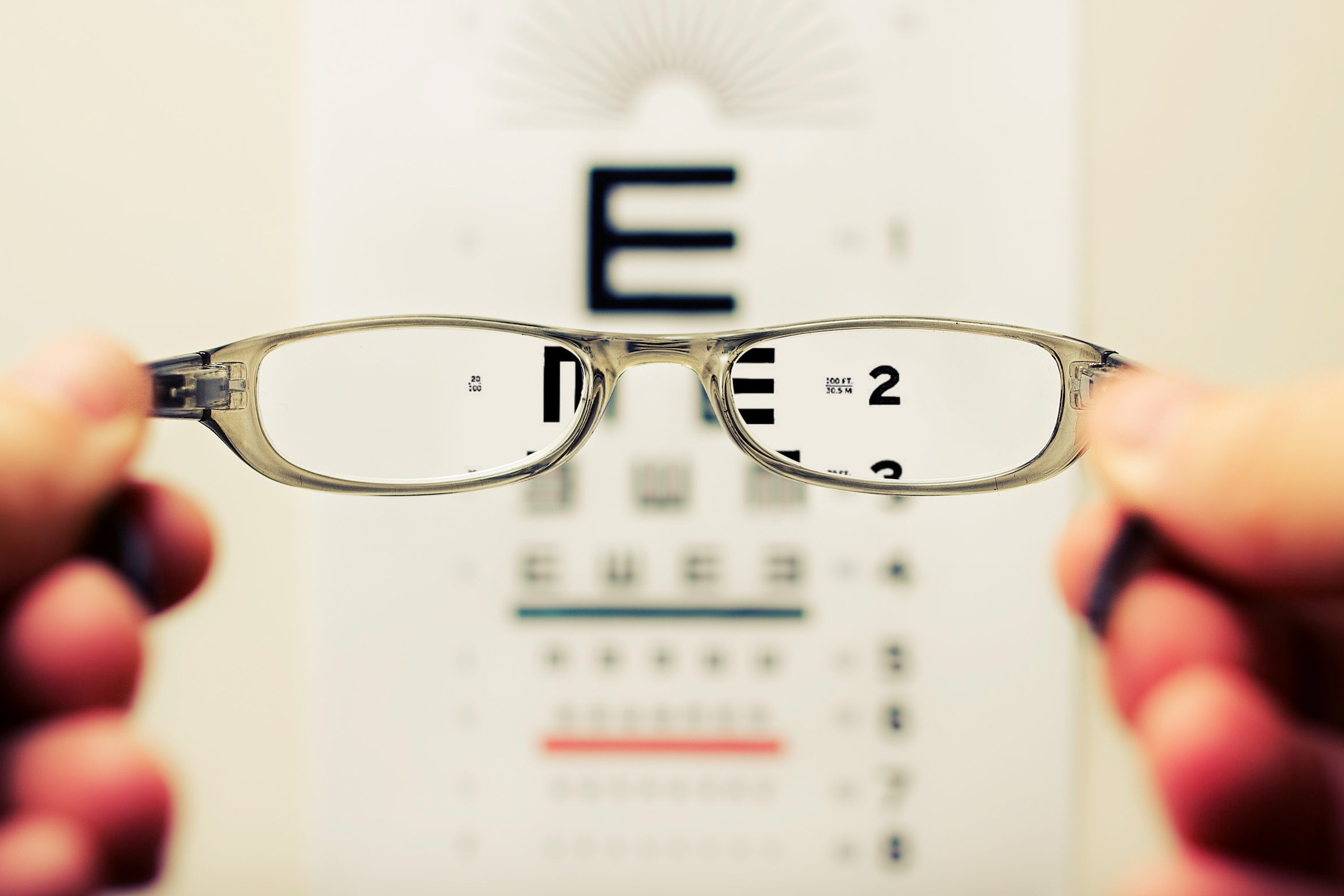
Regular comprehensive eye exams are essential to protect your vision. Even if you aren't experiencing noticeable symptoms, many serious eye diseases develop gradually without clear signs. Conditions such as glaucoma, macular degeneration, and diabetic eye disease can lead to irreversible damage if not detected early.
Why Regular Exams Matter
- Early Detection: Identify conditions before they significantly impact your vision.
- Preventive Care: Allows for timely intervention and treatment to preserve your sight.
- Peace of Mind: Ensures your eyes remain healthy as you age.
What to Expect During Your Exam
At The Vision Clinic, your comprehensive eye exam includes:
- Eye Function Tests: Evaluate focusing ability, eye tracking, peripheral vision, color vision, and depth perception.
- Eye Health Evaluation: Checks for glaucoma, cataracts, corneal issues, macular degeneration, and diabetic eye conditions. This includes pupil dilation and internal eye examination.
- Visual Acuity Testing: Assesses how clearly you see at different distances, identifying refractive errors such as myopia (nearsightedness), hyperopia (farsightedness), presbyopia, and astigmatism.
Schedule Your Eye Exam Today
Preserve your vision by scheduling regular comprehensive eye exams at our Norman or Moore locations:
- Norman Vision Clinic: (405) 321-2155
- Moore Vision Clinic: (405) 794-2020
Frequently Asked Questions
How often should I get an eye exam?
We recommend annual comprehensive exams to detect changes early, even if you have no noticeable symptoms.
Will my eyes be dilated?
Typically yes, dilation helps us thoroughly examine the internal structures of your eyes and detect potential problems early.
What conditions can you detect?
Our exams detect glaucoma, cataracts, macular degeneration, diabetic eye disease, and refractive errors among other common conditions.
Prescription Glasses
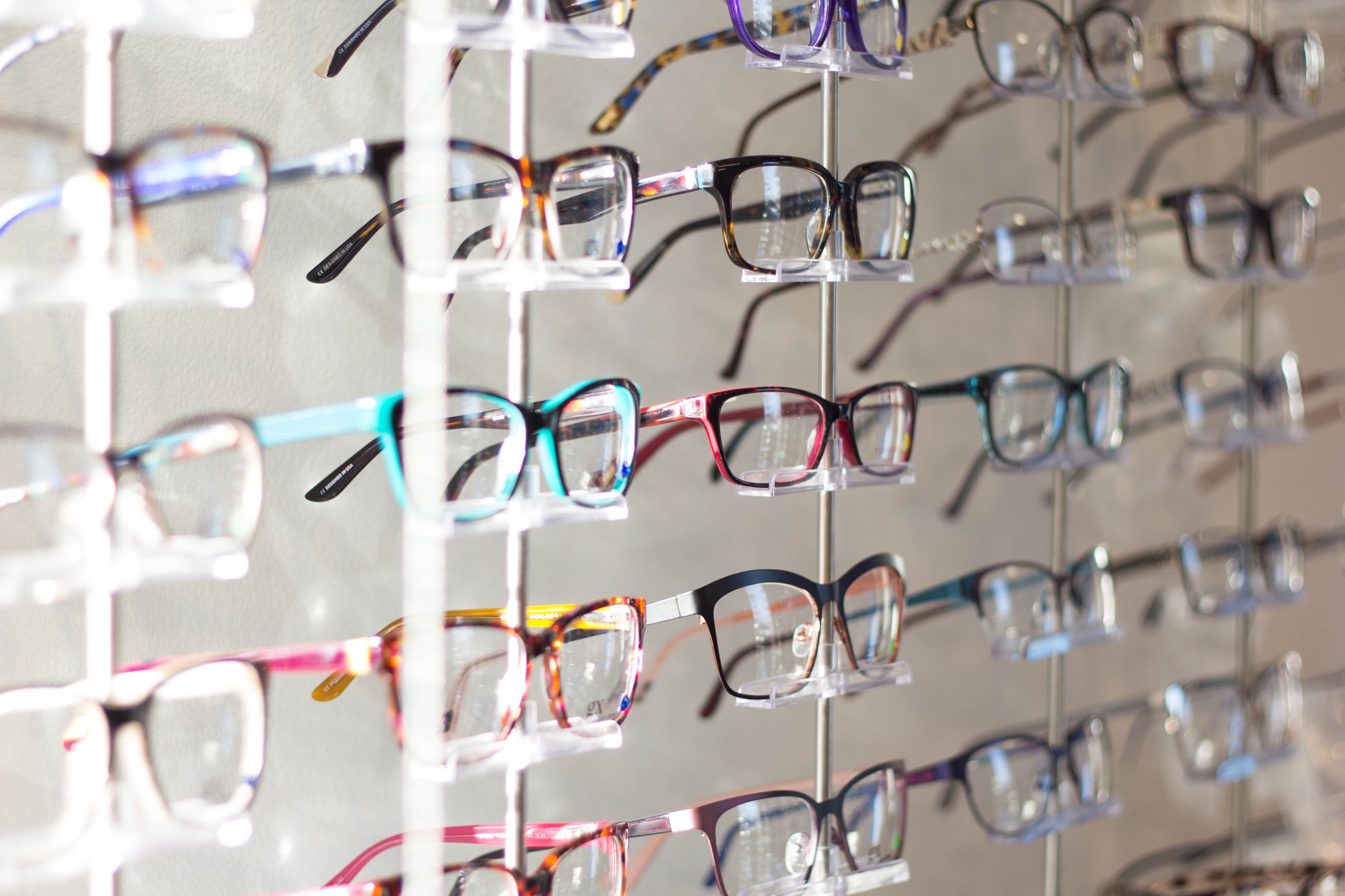
Finding the right prescription eyewear involves more than just clear vision. At The Vision Clinic, we ensure your glasses or contacts are comfortable, stylish, and tailored precisely to your vision needs and personal preferences.
Accurate Prescriptions & Comfortable Vision
Our experienced optometrists perform comprehensive eye exams to precisely measure your visual acuity, checking for conditions like:
- Myopia (nearsightedness)
- Hyperopia (farsightedness)
- Astigmatism
- Presbyopia (age-related near vision changes)
Stylish Frames & Personalized Selection
Our extensive collection features the latest eyewear from top brands like:
- Polo (Ralph Lauren)
- Maui Jim Sunglasses
- Prada
- Emporio Armani
- Escada
- Joseph Abboud
- Kenneth Cole
- Tommy Hilfiger
- Disney
- Versace
Our skilled optical team will help you choose frames that flatter your face and match your lifestyle.
Schedule an Eyewear Consultation
Ready to find your perfect pair of glasses or contact lenses? Call today:
- Norman Vision Clinic: (405) 321-2155
- Moore Vision Clinic: (405) 794-2020
Frequently Asked Questions
How long does it take to get new glasses?
Most glasses are ready within 7-10 business days. Rush services may be available upon request.
Can I try contacts before buying them?
Yes! We offer trial pairs so you can ensure your lenses are comfortable and provide optimal vision before committing.
Do you accept outside prescriptions?
Absolutely! Bring your existing prescription, and we'll help you choose the perfect frames or contacts.
Contact Lenses from Your Norman or Moore Optometrist
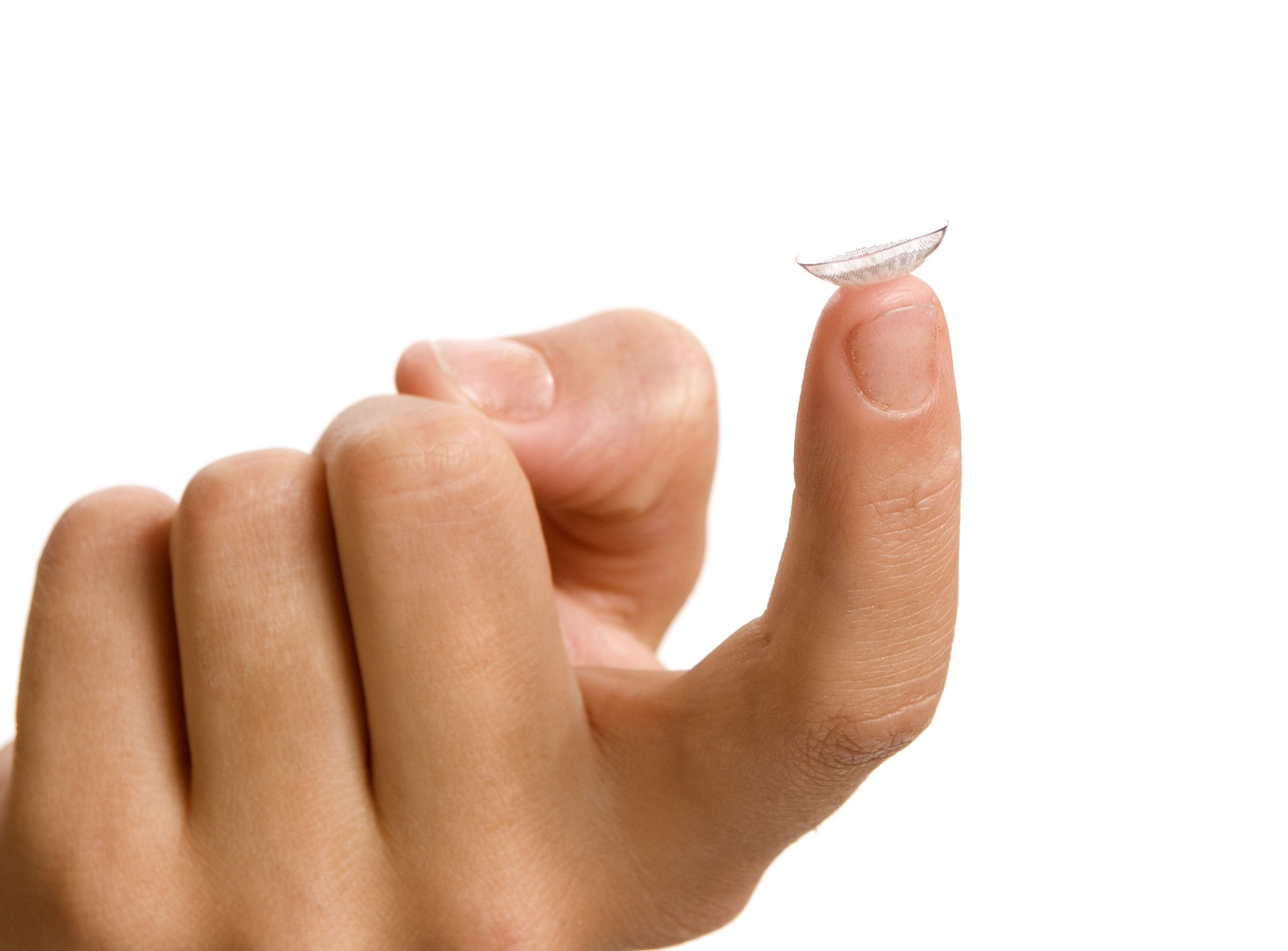
Contact lenses offer a convenient and effective vision correction solution for those looking for an alternative to eyeglasses. With advances in technology, today's contact lenses are more comfortable and better equipped to address a wide range of vision issues. At The Vision Clinic, our optometrists will help you choose the perfect lenses to fit your lifestyle.
The All-Important Contact Lens Exam
Getting a corrective vision prescription is just the first step in obtaining contact lenses. At The Vision Clinic, we offer a specialized contact lens exam to ensure your lenses fit properly and provide optimal vision. This exam includes:
- Measuring your pupil and iris diameters
- Measuring corneal curvature with a keratometer
- Mapping the surface of your cornea using corneal topography
- Assessing any eye health conditions that may affect lens wear, such as dry eye or keratoconus
- Evaluating complex refractive errors like presbyopia or astigmatism
Finding the Right Lenses for Your Needs
Depending on your lifestyle and vision needs, there are many types of contact lenses to choose from:
- Extended-wear lenses: Wearable for up to two weeks, including overnight use.
- Daily disposable lenses: Convenient, single-use lenses with no cleaning required.
- Soft contacts: Comfortable and popular for most users.
- Rigid gas permeable (RGP) lenses: Provide superior vision correction and are less prone to irritation.
- Toric lenses: Correct astigmatism.
- Scleral lenses: Ideal for patients with dry eye or keratoconus.
- Multifocal lenses: Correct presbyopia.
- Moisture-retaining lenses: For added comfort and hydration.
Multiple fittings may be needed to ensure that your new contacts provide the best comfort and vision.
Schedule Your Contact Lens Fitting
If you're ready to enjoy clear vision without the hassle of eyeglasses, contact lenses might be the perfect solution. To get started, call us today:
- Norman Vision Clinic: (405) 321-2155
- Moore Vision Clinic: (405) 794-2020
Order Contacts Online
For your convenience, you can order your contact lenses online and have them shipped directly to your home. Choose your clinic below to get started.


Frequently Asked Questions
How long does it take to get my contact lenses?
It typically takes about 7-10 days for your contact lenses to arrive. We offer expedited options if necessary.
Can I try contact lenses before purchasing?
Yes! We offer trial lenses to ensure they are comfortable and meet your vision needs before you commit to a full supply.
Do you offer contact lenses for astigmatism?
Yes! We offer toric contact lenses designed specifically to correct astigmatism.
Conditions We Treat
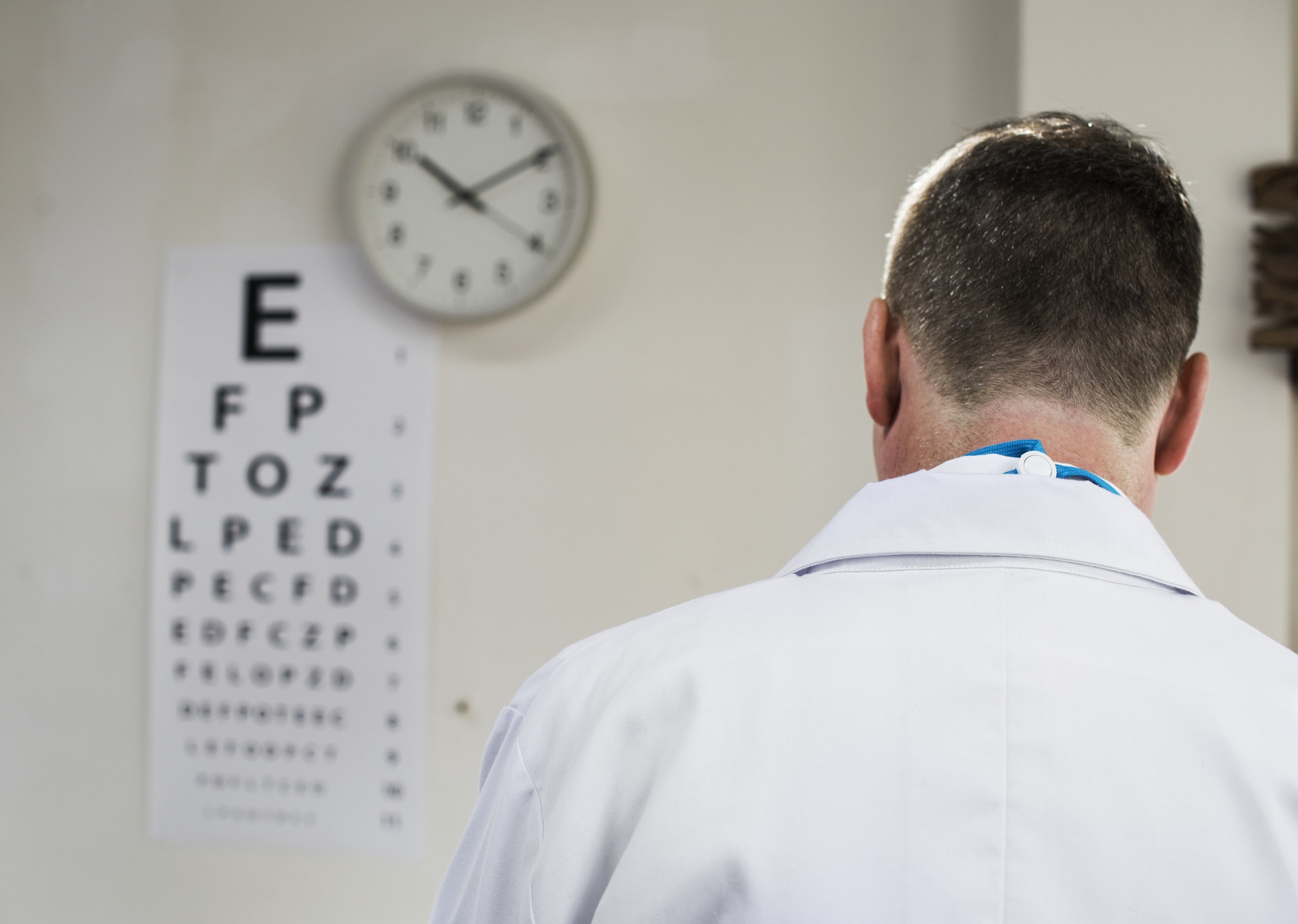
At The Vision Clinic of Norman & Moore, our optometry staff considers your vision and eye health our number one priority. That's why we've spent years developing the tools, techniques, and a state-of-the-art facility to help us diagnose, treat, and prevent a wide variety of conditions affecting your eyes.
Vision problems can affect people of any age. Be sure to see an optometrist as soon as you notice any signs or symptoms affecting your eyesight, including blurry vision, trouble reading, difficulty seeing at night, the presence of "floaters" or "flashes" in your field of vision, red or itchy eyes, increased sensitivity to light, and the feeling of grittiness in the eyes.
You should also see your optometrist on at least a once-a-year-basis. Why? So many eye health conditions don't present with any signs or symptoms until well after the disease process has already been going on for quite some time! Preventive optometry and early detection is the best way to minimize your risk of developing an eye disease and minimize the impact of the disease if one is detected on a comprehensive eye exam.
Many parents also opt to bring their children in for pre-school and pre-sport vision testing. It's a great way to ensure that their child's eyesight is as optimal as possible so that the kid can participate fully in class, on the field, or in any other activity that he or she participates in.
So, what kind of conditions do we detect? Our optometry team both diagnoses and treats several of the following common eye-related problems:
- Chronic dry eye
- Conjunctivitis (pink eye) and other ocular infections
- Macular degeneration
- Glaucoma
- Cataracts
- Diabetic retinopathy
- Presbyopia (farsightedness)
- Myopia (nearsightedness)
- Astigmatism
- Visual processing disorders
- Pre- and post-surgical management (including LASIK eye surgery)
Frequently Asked Questions
Can you help with dry eye?
Yes, we offer treatment plans including drops, lifestyle tips, and in-office procedures.
Do you screen for diabetic retinopathy?
Yes, it's part of our regular eye health exams for patients with diabetes.
How do I know if I have glaucoma?
We perform tonometry and optic nerve screening to detect and monitor glaucoma.
Laser Vision Correction
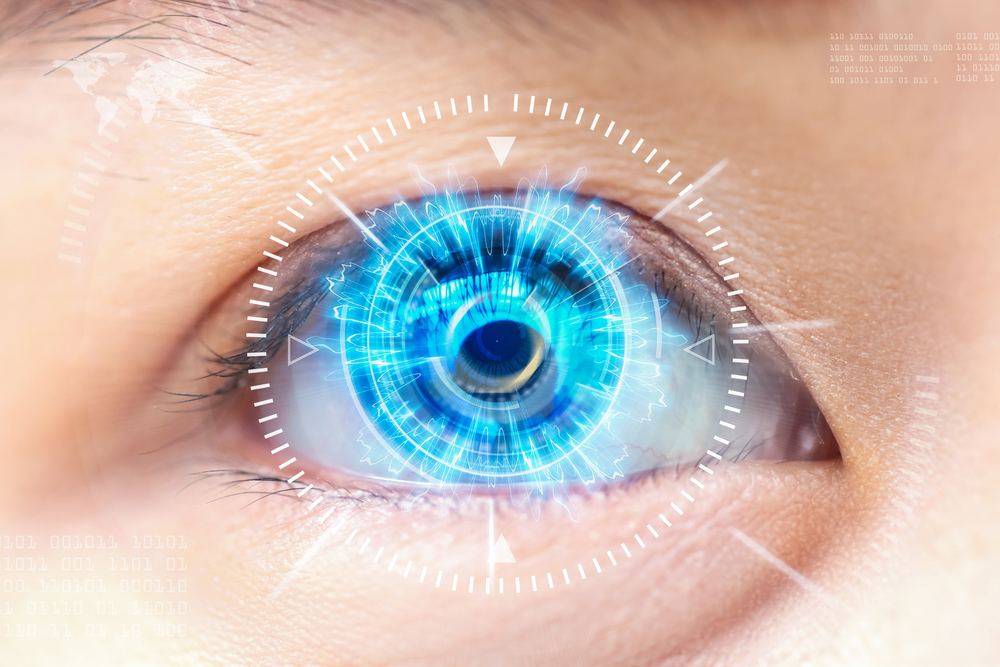
Laser vision correction can significantly reduce or even eliminate the need for glasses or contact lenses. At The Vision Clinic, our optometrists in Norman and Moore help you determine whether this option is right for your vision and lifestyle.
How It Works
Refractive errors like myopia (nearsightedness), hyperopia (farsightedness), and astigmatism are caused by irregularities in the shape of the cornea. Laser surgery reshapes the cornea to better focus light on the retina.
Types of Laser Eye Surgery
LASIK (Laser-Assisted In Situ Keratomileusis) is the most common procedure, reshaping the inner layers of the cornea. Other options include:
- PRK – Treats similar issues as LASIK but reshapes the surface layer of the cornea.
- RLE – Refractive Lens Exchange, often used in cataract surgery, replaces the eye's natural lens to correct severe cases of myopia or hyperopia.
Candidacy and Considerations
The best candidates have a stable prescription and healthy eyes. Those with severe refractive error, eye diseases, dry eye, or frequent prescription changes may be better suited for alternative treatments.
Before surgery, our team will conduct a detailed eye exam to evaluate your eligibility. You may need to stop wearing contacts for a short period prior to the procedure.
While serious complications are rare, side effects may include temporary dryness, glare, or minor visual distortions. Most patients achieve 20/25 vision or better.
We Provide Pre- and Post-Op Care
We coordinate with trusted local surgeons and offer full pre-operative screening and post-operative monitoring to ensure a smooth experience and optimal results.
To schedule an evaluation, call:
- Norman Vision Clinic: (405) 321-2155
- Moore Vision Clinic: (405) 794-2020
Frequently Asked Questions
Am I a good candidate for LASIK?
You may qualify if you have mild to moderate refractive error, a stable prescription, and overall good eye health. We'll assess everything during your consultation.
What's the difference between LASIK and PRK?
LASIK reshapes the inner cornea, while PRK works on the surface. Both correct vision, but PRK may be preferred if your cornea is thin or irregular.
Will I still need glasses afterward?
Most patients see clearly without correction, but some may still need reading glasses or low-strength lenses as they age. LASIK doesn't stop age-related vision changes.
Glaucoma Services from Your Oklahoma Optometrists

Glaucoma is a progressive eye disease that can lead to permanent vision loss if left untreated. While it cannot be prevented, early detection and ongoing care can slow its progression and preserve your eyesight. At The Vision Clinic, we provide full diagnostic and monitoring services to patients in Norman and Moore—before and after any surgical intervention.
Understanding Glaucoma
Glaucoma occurs when pressure builds up in the eye and damages the optic nerve, which carries visual information to the brain. This pressure is typically caused by poor drainage of aqueous humor (fluid inside the eye).
There are two main types:
- Open-angle glaucoma: The most common type, caused by slow fluid buildup.
- Angle-closure glaucoma: Less common, but typically more sudden and severe.
Symptoms often appear late in the disease and may include blurred vision, halos around lights, eye pain, headaches, and loss of peripheral vision.
Who's at Risk?
Risk factors include being over 40, having a family history of glaucoma, certain inflammatory conditions, or a history of eye trauma. Ethnic backgrounds such as African-American, Japanese, Hispanic, Russian, Irish, and Inuit are also associated with higher risk.
Our Approach to Diagnosis and Treatment
We diagnose glaucoma through a comprehensive eye exam that includes:
- Intraocular pressure measurement
- Corneal thickness evaluation
- Visual field testing
- Retinal and optic nerve assessment
Treatment is customized based on the severity of the condition and may include medicated eye drops, oral medications, or lifestyle adjustments. For advanced cases, we'll refer you to a trusted surgeon and resume your care post-op.
Schedule an Eye Exam Today
The best way to protect your vision is through regular eye exams. To schedule an appointment, call:
- Norman Vision Clinic: (405) 321-2155
- Moore Vision Clinic: (405) 794-2020
Frequently Asked Questions
How do I know if I have glaucoma?
Glaucoma often has no symptoms in early stages. Regular eye exams are the only reliable way to detect it before vision loss occurs.
Is glaucoma curable?
No, but it can be managed. With early detection and treatment, we can significantly slow progression and preserve your vision.
What treatments are available?
Common treatments include eye drops, oral medications, and in some cases, surgery to relieve pressure in the eye. We create a care plan tailored to your needs.
Dry Eye Treatment

Dry Eye Syndrome is a common condition that occurs when your eyes don't produce enough tears or when the tears evaporate too quickly. This can lead to burning, redness, irritation, and blurred vision. At The Vision Clinic, we offer customized treatment plans to bring you long-term relief and improved comfort.
Common Symptoms
You might be suffering from dry eye if you frequently experience:
- Stinging, burning, or scratchy sensation in the eyes
- Sensitivity to light
- Redness or blurred vision
- Excessive tearing (a common response to dryness)
- A feeling of something "gritty" in the eye
Our Treatment Approach
We use advanced diagnostics including tear film evaluation and meibomian gland imaging to assess the root cause of your dryness. Based on your unique results, we may recommend:
- Prescription eye drops
- Thermal pulsation therapy
- Nutritional supplements
- Lifestyle and environmental adjustments
For more details about our dry eye treatment options, visit our dedicated page:
Learn More About Dry Eye Treatment →
Ready to Find Relief?
Don't ignore your discomfort — dry eye can worsen over time without proper care. Call to schedule an evaluation with one of our experienced optometrists:
- Norman Vision Clinic: (405) 321-2155
- Moore Vision Clinic: (405) 794-2020
Frequently Asked Questions
What causes dry eye?
It can result from aging, environmental factors, screen time, medications, or meibomian gland dysfunction. We diagnose the root cause with in-office tests.
Is dry eye permanent?
In many cases, it's a chronic condition. But with regular treatment and monitoring, symptoms can be significantly reduced or eliminated.
What treatments are available?
We offer prescription drops, heat therapy, gland expression, and more — all personalized to your specific condition and comfort level.
Blue Light Filtering Lenses from Our Norman and Moore Optometrists

Blue light is all around us. While it's a natural part of the light spectrum, too much exposure can lead to eye strain and other potential long-term damage. At The Vision Clinic, we're seeing an increase in patients suffering from symptoms related to blue light overexposure, which can range from minor irritation to more serious conditions.
Common Sources of Blue Light
Blue light is emitted by the sun, but modern technology has introduced several other sources. These include:
- Fluorescent and LED light bulbs
- Flat screen LED televisions
- CFL light bulbs
- Computer monitors and tablets
- Smartphones and handheld devices
Given the amount of time spent in front of screens, especially in children, the risk of blue light damage has become a growing concern.
How Blue Light Affects Your Eyes
Excessive exposure to blue light can cause:
- Itchy, watery, or burning eyes
- Eye strain and blurry vision
- Difficulty focusing clearly
For those who experience these symptoms, taking regular breaks from screens and limiting exposure can provide relief.
Impact of Blue Light on Sleep Patterns
Exposure to blue light, especially late at night, can disrupt your sleep cycle by affecting melatonin production. Many insomnia patients find relief by reducing screen time 90 minutes before bed.
Long-Term Effects of Blue Light Exposure
Prolonged exposure to blue light has been linked to the early development of cataracts and macular degeneration. Because blue light exposure is cumulative, it's important to take steps now to protect your vision for the future.
Protect Your Eyes with Blue Light Filtering Lenses
At The Vision Clinic, we offer blue light filtering lenses that can help reduce exposure and protect your eyes from the harmful effects of extended screen time.
Schedule Your Eye Exam Today
Want to learn more about protecting your eyes from blue light? Contact our Norman or Moore offices today to schedule an exam and discuss blue light filtering lens options:
- Norman Vision Clinic: (405) 321-2155
- Moore Vision Clinic: (405) 794-2020
Frequently Asked Questions
What is blue light?
Blue light is a high-energy visible light that comes from both natural and artificial sources, including the sun and digital devices.
How do blue light filtering lenses work?
These lenses are designed to block or filter out blue light from screens and artificial lighting, reducing eye strain and improving comfort.
Who should use blue light filtering lenses?
Anyone who spends extended time in front of screens, especially those who experience eye strain, headaches, or difficulty sleeping due to blue light exposure.
Protecting Their Vision: Myopia Control for Children

At Norman Vision Clinic, we understand the growing concern of myopia (nearsightedness) in children. As myopia progresses, it can lead to serious eye conditions later in life, such as glaucoma and retinal detachment. That's why we offer CooperVision MiSight® 1 day contact lenses, a breakthrough solution proven to slow myopia progression in children aged 8-12.
What is Myopia?
Myopia causes blurry distance vision, typically developing in childhood and worsening over time. If untreated, it increases the risk of serious eye conditions in adulthood.
Why Myopia Control Matters
Traditional glasses and contacts correct vision but don't stop myopia from worsening. Myopia control, such as CooperVision MiSight® 1 day lenses, aims to slow or halt this progression.
Introducing CooperVision MiSight® 1 Day
MiSight® 1 day lenses are the first FDA-approved contact lenses proven to slow myopia progression in children. These daily disposable lenses feature two optical zones:
- Central Zone: Corrects nearsightedness for clear distance vision.
- Peripheral Zones: Reduces eye elongation, the primary cause of myopia progression.
The Benefits of MiSight® 1 Day
- Proven to slow myopia progression compared to regular lenses.
- Provides clear vision for daily activities like school and sports.
- Daily disposables eliminate cleaning and storage hassles.
- Easy adaptation with comprehensive training and support.
- Helps reduce long-term eye health risks by slowing myopia progression.
Is MiSight® 1 Day Right for Your Child?
The best way to determine if MiSight® 1 day lenses are suitable for your child is through a comprehensive eye exam. We'll assess their vision, lifestyle, and suitability for contact lenses.